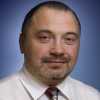President Dmitry Medvedev was very active last week.
After meeting with his supporters at the Digital October conference center, he met with the Federation Council leadership, spoke at Moscow State University, teamed up with Prime Minister Vladimir Putin to hold a video conference with United Russia campaign headquarters in the regions and, finally, spoke with Interior Ministry officials at a retreat in Tver.
But Medvedev was not very convincing in his new role as the outgoing president and the top gun on United Russia’s party list. His meeting at Moscow State University stood out not only because of how poorly it was staged, but also because it was conducted in such a stuffy, bureaucratic style — something that was in sharp contrast to Medvedev’s image as a liberal reformer and tech-savvy blogger.
The key element is not Medvedev’s apparent shift in style, but in the tactics the authorities have adopted to respond to the party of power’s declining popularity.
Rather than strengthening the party by forming a coalition with one or more of its junior political partners, the new strategy consists of dumping all of the party’s political dead weight and pumping more hot air into its remaining assets.
The All-Russia People’s Front is Putin’s contribution to the effort, while Medvedev is bringing his latest idea — “big government” — into play.
Characteristically, six months after its creation, the People’s Front remains only a shallow veneer to United Russia. The front has no organizational structure, relying entirely on the infrastructure of Putin’s network of loyal bureaucrats in the regions.
In recent weeks, Kremlin spin doctors and party functionaries have begun altering their predictions for United Russia’s showing in the upcoming elections. Previous claims that the party would retain its constitutional majority in the State Duma are increasingly replaced by predictions of holding onto a simple majority only.
This prediction is supported by results of the latest VTsIOM poll in early October indicating that United Russia might retain its absolute majority in the Duma but lose up to one-fourth of its mandates to the three minority parties. That would mean a new configuration of power based not so much on United Russia as it would be on “the people” — meaning a grouping of influential individuals and major corporations hand-picked by the authorities.
Nikolai Petrov is a scholar in residence at the Carnegie Moscow Center.
A Message from The Moscow Times:
Dear readers,
We are facing unprecedented challenges. Russia's Prosecutor General's Office has designated The Moscow Times as an "undesirable" organization, criminalizing our work and putting our staff at risk of prosecution. This follows our earlier unjust labeling as a "foreign agent."
These actions are direct attempts to silence independent journalism in Russia. The authorities claim our work "discredits the decisions of the Russian leadership." We see things differently: we strive to provide accurate, unbiased reporting on Russia.
We, the journalists of The Moscow Times, refuse to be silenced. But to continue our work, we need your help.
Your support, no matter how small, makes a world of difference. If you can, please support us monthly starting from just $2. It's quick to set up, and every contribution makes a significant impact.
By supporting The Moscow Times, you're defending open, independent journalism in the face of repression. Thank you for standing with us.
Remind me later.






